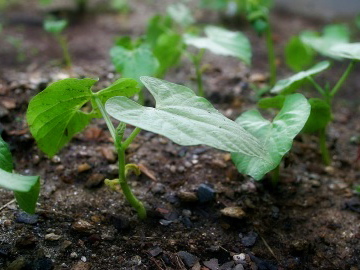
reference-image, l
(article, Henry David Thoreau)
[%adInjectionSettings noInject=true] [%pageBreakSettings nobreak=true] h3. From the chapter "The Bean Field" Meanwhile my beans, the length of whose rows, added together, was seven miles already planted, were impatient to be hoed, for the earliest had grown considerably before the latest were in the ground; indeed they were not easily to be put off. What was the meaning of this so steady and self-respecting, this small Herculean labor, I knew not. I came to love my rows, my beans, though so many more than I wanted. They attached me to the earth, and so I got strength like Antaeus. [[block(sidebar). h1. About the book and author Born in nearby Concord, Massachusetts, Henry David Thoreau decided to move to the shores of Walden Pond in the mid-1840s. What is today a popular swimming hole for the Boston area was then practically wilderness, and Thoreau set about building himself a cabin and trying to live a largely self-sufficient existence. As the 1854 publication of his philosophical memoir Walden would show, Thoreau was not exactly a natural farmer — he disdained soil improvements, for example — but he was happy to live off his meager harvest. Long before the back-to-the-land movement, Thoreau was going it alone in his own back yard. ]] But why should I raise them? Only Heaven knows. This was my curious labor all summer — to make this portion of the earth's surface, which had yielded only cinquefoil, blackberries, johnswort, and the like, before, sweet wild fruits and pleasant flowers, produce instead this pulse. What shall I learn of beans or beans of me? I cherish them, I hoe them, early and late I have an eye to them; and this is my day's work. It is a fine broad leaf to look on. My auxiliaries are the dews and rains which water this dry soil, and what fertility is in the soil itself, which for the most part is lean and effete. My enemies are worms, cool days, and most of all woodchucks. The last have nibbled for me a quarter of an acre clean. But what right had I to oust johnswort and the rest, and break up their ancient herb garden? Soon, however, the remaining beans will be too tough for them, and go forward to meet new foes. When I was four years old, as I well remember, I was brought from Boston to this my native town, through these very woods and this field, to the pond. It is one of the oldest scenes stamped on my memory. And now tonight my flute has waked the echoes over that very water. The pines still stand here older than I; or, if some have fallen, I have cooked my supper with their stumps, and a new growth is rising all around, preparing another aspect for new infant eyes. Almost the same johnswort springs from the same perennial root in this pasture, and even I have at length helped to clothe that fabulous landscape of my infant dreams, and one of the results of my presence and influence is seen in these bean leaves, corn blades, and potato vines. I planted about two acres and a half of upland; and as it was only about 15 years since the land was cleared, and I myself had got out two or three cords of stumps, I did not give it any manure; but in the course of the summer it appeared by the arrowheads which I turned up in hoeing, that an extinct nation had anciently dwelt there and planted corn and beans ere white men came to clear the land, and so, to some extent, had exhausted the soil for this very crop. [%image promo-image float=right width=400 credit="Photo: iStockphoto/blaneyphoto" caption="Making the earth speak beans."] Before yet any woodchuck or squirrel had run across the road, or the sun had got above the shrub-oaks, while all the dew was on, though the farmers warned me against it — I would advise you to do all your work while the dew is on — I began to level the ranks of haughty weeds in my bean-field and throw dust upon their heads. Early in the morning I worked barefooted, dabbling like a plastic artist in the dewy and crumbling sand, but later in the day the sun blistered my feet. There the sun lighted me to hoe beans, pacing slowly backward and forward over that yellow gravelly upland, between the long green rows, 15 rods, the one end terminating in a shrub-oak copse where I could rest in the shade, the other in a blackberry field where the green berries deepened their tints by the time I had made another bout. Removing the weeds, putting fresh soil about the bean stems, and encouraging this weed which I had sown, making the yellow soil express its summer thought in bean leaves and blossoms rather than in wormwood and piper and millet grass, making the earth say beans instead of grass — this was my daily work. As I had little aid from horses or cattle, or hired men or boys, or improved implements of husbandry, I was much slower, and became much more intimate with my beans than usual. But labor of the hands, even when pursued to the verge of drudgery, is perhaps never the worst form of idleness.

reference-image, l

feature-image, l

featurette-image, l

promo-image, l